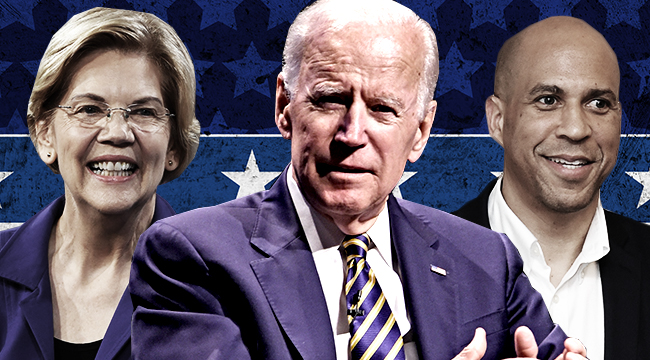
Updated, April 29th, 2019.
November 3, 2020, looms in the distance. The day when voters will head to the ballots for the 2020 presidential election. And though we have almost two years until the day is upon us, the election is already heating up — with just about every theorized “maybe” throwing their hats into the ring and announcing their candidacies. It seems like just about all comers, from seasoned politicians to billionaire businessmen, have decided that 2020 is their year.
This is the most diverse set of candidates in American history. Women, people of color, and members of the LGBTQ community have all come forward, and it’s shaping up to be a head-spinning, confusing, busy election. With that in mind, you’re probably asking: “Who the hell is officially running, and what do they believe?”
If you want to know more about the 2020 presidential candidates, here’s your guide to their beliefs on major issues:
DEMOCRATIC
Confirmed
Joe Biden, Former Vice President of the United States
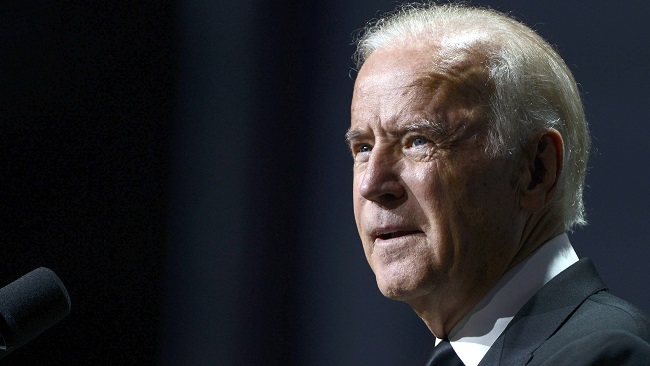
The 76-year-old former Vice President of the United States and former Senator of Delaware announced his candidacy on April 25 after months of speculation. In his announcement, he quoted the Declaration of Independence before turning his focus to the August 2017 white supremacist rallies in Charlottesville, VA that led to one antiracist counter-protester’s death. He said that when President Trump told reporters there were “very fine people on both sides,” that’s when he knew he needed to run. “In that moment, I knew the threat to this nation was unlike any I had ever seen in my lifetime.” He called the current political climate a battle for the soul of the nation.
The core values of this nation… our standing in the world… our very democracy…everything that has made America — America –is at stake. That’s why today I’m announcing my candidacy for President of the United States. #Joe2020 https://t.co/jzaQbyTEz3
— Joe Biden (@JoeBiden) April 25, 2019
His announcement has been met with myriad think-pieces about why he’s the one to beat Trump. But he has also had his fair share of criticism for his moderate voting record, his willingness to work with Wall Street donors, his campaign-trail work on behalf of members of the GOP, and, of course, his treatment of Anita Hill, a lawyer and professor who came forward in 1991 and alleged that now-Supreme Court Justice Clarence Thomas had sexually harassed her. Biden led the confirmation hearings for Thomas, and he was in charge of the all-white, all-male panel of Congress members who grilled Hill about her allegations and, per the New York Times, failed “to call as corroborating witnesses other women who were willing to testify before the Judiciary Committee.”
This is his third presidential campaign.
Climate change: As former President Barack Obama’s right-hand man, Biden was along for the Paris Climate Accord ride, and he decried Trump’s decision to pull out of the agreement. He has called climate change an existential threat to humanity but not much else. Per his campaign website, he has said that the U.S. must “turbocharge our efforts to address climate change and ensure that every American has access to clean drinking water, clean air, and an environment free from pollutants.” He has not introduced specific policy proposals, and he has not signaled support for either the Green New Deal or a carbon tax.
His lifetime score according to the League of Conservation Voters is 83 percent.
LGBTQ rights: As a Senator, Biden voted for the Defense of Marriage Act, which defined marriage as between one man and one woman, but he later opposed it. Before Obama publicly supported gay marriage, there was Biden. In 2012, he became the highest ranking official to publicly support legalizing gay marriage while making an appearance on Meet the Press — a move which is rumored to have forced Obama’s hand and caused strife in the White House. He made a similar move in 2014 when, according to Pink News, he publicly supported an executive order banning anti-LGBT discrimination in the workplace before Obama had commented on the order; the president signed the order two months later. He hasn’t been without his gaffes: he recently praised Vice President Mike Pence, who is notoriously anti-LGBT, calling him a “decent guy.” He later apologized for the remark.
Immigration: Biden has called the immigration system “broken” and has called for policies that “address the root causes of migration that push people to leave behind their homes and everything they know to undertake a dangerous journey for the chance at a better life.” He has yet to offer any comprehensive policies, other than emphasizing legal immigration, but his record as a U.S. Senator tells us plenty. In 2006, he voted to build a border fence, and he later clarified during the 2007 Democratic primary debates that he voted “yes” specifically to address drug trafficking. He voted to allow undocumented immigrants to participate in Social Security and voted against mass deportation of undocumented workers, instead stating that they should be granted amnesty. He also included a provision in his Violence Against Women Act that would allow undocumented women to seek amnesty in the U.S. if they were physically abused.
All that said, however, he also played a hand in some of the harsher anti-immigration policies the U.S. has seen in the last two decades. He led a vote to prevent former President Bill Clinton from allowing HIV-positive Haitian refugees into the country. He further voted to increase the number of Border Patrol agents and deny welfare benefits to undocumented individuals, and he voted against granting Medicaid access to documented immigrants.
Taxes: Biden is a born-and-raised son of Scranton. One of the chief reasons so many pundits think he’s the one to beat Trump is due to the fact that so many working-class people like his policies. What are they, exactly? Well, he writes that “today, CEOs and Wall Street are putting profits over workers, plain and simple.” And while he doesn’t have a tax policy per se yet, according to Vox, he has pinpointed “a tax code that is excessively friendly to investors rather than workers as a central problem” that he would eliminate. He has also called for raising taxes…on the passive income of wealthy business owners, that is. He’d triple the Child Tax Credit, and he supports making public higher education free for all. He voted to repeal Glass-Steagall, which was a contributing factor to the 2008 financial crisis, and he has been criticized for his willingness to rely on big donors and his relationships with several financial companies. That said, he did tell The New Yorker‘s Evan Osnos that he regretted his Glass-Steagall vote, and he has been talking about protecting the middle class for years.
Gun control: Biden is a staunch advocate for stricter gun control measures. He voted for the 1994 Assault Weapons Ban and headed up the Obama administration’s Gun Violence Prevention Task Force, which was created after the Sandy Hook shooting in 2012. He supports universal background checks, and while he gave a speech in mid-2016 stating that the Obama administration’s work had reached an impasse, he told advocates, “Don’t quit on this.” During his time as Vice President, he publicly pushed for the development of “smart guns” which only allow their owners to pull the trigger.
Health care: Per his campaign website, Biden has promised to “defend and build upon the Affordable Care Act to ensure every American has access to quality, affordable health care. And, we should dedicate the full force of our nation’s expertise and resources to tackle our greatest public health challenges, including cancer, opioid addiction, and mental health.” That said, it’s hard to say what he believes. He has not publicly endorsed single payer aka Medicare-for-all, and some advocates think there is “a zero-percent chance” he’ll back it, given that he was one of the main supporters of Obamacare. That suspicion may not be without merit: his first big-donor fundraiser after announcing his candidacy was hosted by the CEO of Comcast and attended by the CEO of Independence Blue Cross, Philadelphia’s largest insurance company.
Peter Buttigieg, Mayor of South Bend, Indiana
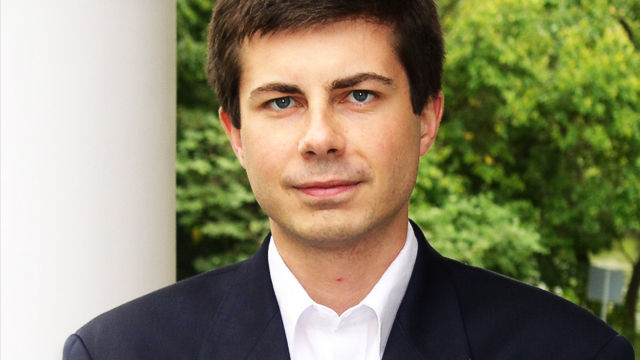
We wouldn’t blame you if you hadn’t heard of Mayor Pete Buttigieg until recently. Despite the fact that he announced a presidential exploratory committee back in January and he was named as one of the future faces of the Democratic party by none other than former President Barack Obama, Buttigieg was, by and large, just “Mayor Pete” to the people of South Bend, Indiana until about a month ago. He was elected mayor of South Bend, an economically depressed former manufacturing town, in 2012, when he was just 29. As mayor, he has invested massively in urban development initiatives, resulting in a stark turnaround for the city that was, 12 months before his election, named one of the dying towns of the U.S. by Time.
Despite his impressive record, he didn’t become a household name until he had a watershed moment at a CNN Town Hall in late March, when he criticized Vice President Mike Pence. “How could he allow himself to become the cheerleader of the porn star presidency?” he asked in front of a large audience. At that point, he was still just mulling over a presidential run, but now it’s official: he announced his candidacy on April 14. “I realize the audacity of doing this as a midwestern millennial mayor. More than a little bold at age 37 to seek the highest office in the land,” he said in his announcement. “It’s time to walk away from the politics of the past.”
If he were to win, he would be the first openly gay head of state this country has ever elected.
Climate change: Climate change, according to Buttigieg in a 2017 interview, is a global issue, but the impact is “profoundly local. The impact is local, whether we’re talking about dealing with extreme weather events…or the questions around whether the climate played a role in something like [Hurricane] Harvey, the receiving end of it is local, for sure.” When the Trump administration scrubbed information about climate change from the Environmental Protection Agency’s website, Buttigieg announced that the South Bend government would host the information on local servers. He has spoken favorably of the Green New Deal.
LGBTQ rights: Buttigieg is openly gay and married his partner, Chasten Glezman, in June 2018. After Trump first announced the trans military ban in 2017, Buttigieg appeared on local television to state that he disagrees with the decision. He recently tweeted that the ban, which was upheld by SCOTUS, is “a politically motivated attack on fellow Americans who put their lives on the line to protect our country. It is the opposite of leadership.”
Immigration: Buttigieg’s father is himself an immigrant from Malta. The millennial mayor has called for total immigration reform, stating that our system relies on undocumented workers’ labor and then “ruins them.” (He has been calling for compassionate immigration reform since long before the Trump administration, citing it as, among other things, a path to a strong economy.) Buttigieg does not support sending troops to the southern border, saying in an interview with CBS News, “The administration says it’s responding to an emergency, but the emergency was created by the administration.” He calls the border crisis a “humanitarian crisis” not a security crisis—one which could be fixed with good policy.
Taxes: Buttigieg tweeted in 2017 that the Republican tax overhaul is “class warfare.” Therefore, though he has not made any public statements about specific policy, he would likely raise the corporate tax and the tax rate on the wealthiest Americans.
Gun control: Buttigieg supports “common-sense gun safety policies,” and he has called for local action when faced with inaction at the federal and state levels.
Health care: Buttigieg recently told reporters that single-payer is the right way to go—but that he wouldn’t necessarily eliminate the private market. He said, “If the framework we’re using is Medicare, a lot of people who have Medicare also have Medicare supplements, Medicare Advantage, something like that.”
Beto O’Rourke, former Representative from Texas
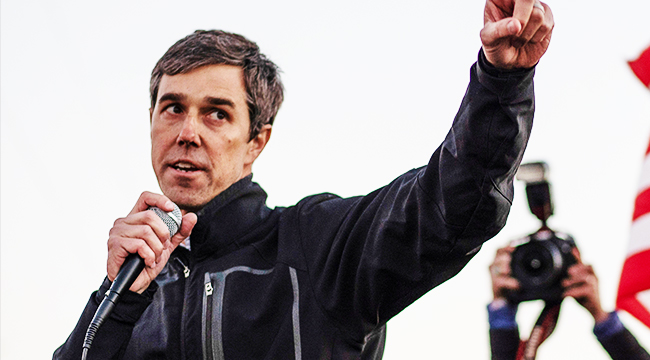
After much hemming and hawing and toying with our emotions, Beto O’Rourke officially announced his candidacy for president on March 14. In his announcement, he said, “This is a defining moment of truth for this country, and for every single one of us.” Of the problems facing the nation, he said, “They will either consume us, or they will afford us the greatest opportunity to unleash the genius of the United States of America.”
If you need a refresher, O’Rourke is the lanky, road-tripping former House Rep who almost unseated Senator Ted Cruz this past fall. Almost. Running on a moderate-progressive campaign, O’Rourke became nationally known not only for his grassroots organizing but for the fact that he was, like, pretty effing cool when he was younger, what with the fact that he rocked a dress while playing bass in a band. Very 90s. Before his Senate run, O’Rourke had been a member of the House of Representatives from 2012.
He is considered moderate, and even slightly right-leaning compared to most of the other Democratic candidates.
Climate change: O’Rouke would rejoin the Paris Climate Accord. Further, he has said, “Literally, the future of our world depends on” tackling climate change. And though outlets like CNBC have reported that he’s not a supporter of the Green New Deal, at his kick-off campaign event, he endorsed the GND, saying, “Some will criticize the Green New Deal for being too bold or being unmanageable. I tell you what, I haven’t seen anything better that addresses this singular crisis we face, a crisis that could at its worst lead to extinction. The Green New Deal does that. It ties it to the economy and acknowledges that all of the things are interconnected.” He has expressed doubt about whether or not it’s feasible to pass the measure in the past, but asserts that swift action is our only chance.
LGBTQ rights: In 2017, O’Rourke released a statement, condemning Trump’s trans military ban, stating, “Every time America has opened opportunities to those previously denied it, we’ve become stronger.” At one of his Senate campaign rallies, he talked extensively about the need for Texas to pass comprehensive civil rights protections for LGBTQ individuals.
Immigration: Having grown up in El Paso, Texas, right on the border between the U.S. and Mexico, O’Rourke is passionate about passing comprehensive immigration reform. One option for the approximately 11 million undocumented immigrants in the U.S.? Instead of amnesty, O’Rourke “wants a three-to-five-year process for immigrants to obtain green cards.” He also supports passing the DREAM Act, which would allow DACA recipients and other undocumented immigrants who came to the country as children to become citizens. He has frequently held rallies in which he decried Trump’s demands for a border wall. At one such event, according to the Dallas Morning News, he said, “The cruelty that we’ve inflicted on these kids, though it was a decision of one person, one man, the president of the United States, it is now a stain that each of us carry.”
Taxes: O’Rouke voted against both the 2017 GOP tax overhaul and the 2015 Death Tax Repeal, which would have eliminated estate taxes. He differs greatly from candidates like Bernie Sanders and Elizabeth Warren in his naked embrace of capitalism. He recently told reporters, “I’m a capitalist. I don’t see how we’re able to meet any of the fundamental challenges that we have as a country without, in part, harnessing the power of the market.”
Gun control: Although O’Rourke is a born-and-raised Texan, he supports banning assault weapons, calling them “weapons of war.” He also supports universal background checks for all gun purchases. He participated in the 2016 House sit-in, wherein House Democrats demanded gun control legislation.
Health care: O’Rourke supports universal health care, and he has previously talked about creating a government-run system, or a single-payer option, similar to Bernie Sanders’s Medicare-for-All plan. That said, he hasn’t committed to any one path to universal health care, per The New York Times. He supported Medicaid expansion in Texas, and part of his Senate run included a proposal that would allow the government to negotiate with health insurance companies, bringing down the price of prescription drugs.
Kirsten Gillibrand, Senator from New York
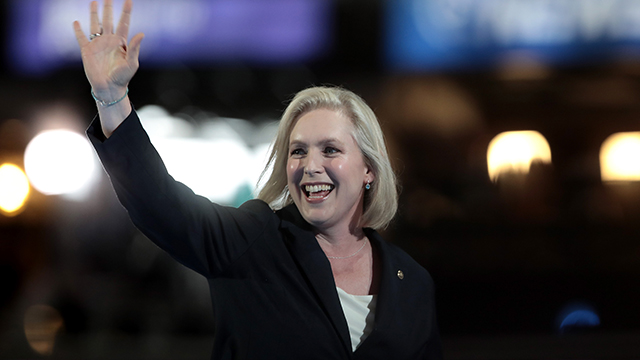
Gillibrand committed to officially running last week. In her announcement video, she said that given the U.S.’s history of achievement, “We can definitely achieve universal health care, we can provide paid family leave for all, end gun violence, pass a Green New Deal, get money out of politics, and take back our democracy.”
Like many other elected officials, Gillibrand got her start as a lawyer, working for high-powered Manhattan firm before she got into electoral politics. She was elected to the House of Representatives in 2006, representing the rather conservative 20th district in upstate New York and held that office until she was appointed to Hillary Clinton’s Senate seat in 2009 (vacated when Clinton became Secretary of State). In 2010, she won the special election to keep her seat and subsequently won her seat again in 2012 and 2018. Before she became a household name, she was known in New York for what the New York Times describes as a “relatively conservative voting record.” She has since become a loud progressive voice, often speaking out against the Trump administration.
Climate change: Gillibrand has a 95 percent lifetime score from the League of Conservation Voters. She supports the Green New Deal, having told Pod Save America, “I think we need a moonshot,” referring to the quick and radical change required of such a policy. She would also like to put a price on carbon, either in the form of a cap-and-trade (which would cap carbon emissions and the trade would allow companies to buy certain carbon emissions standards, incentivizing spending less by emitting fewer greenhouse gases) or a carbon tax.
LGBTQ rights: Despite the fact that she was initially elected in 2006 as a Blue Dog Democrat, Gillibrand has long been an advocate for LGBTQ rights. That said, her views have shifted over the years. Where she was initially supportive of legalizing civil unions in New York while leaving the legality of gay marriage up to states to decide, she voted to end employment discrimination on the basis of sexual orientation and/or gender identity in 2007 and again in 2009, and when she was appointed Senator, she publicly opposed Don’t Ask, Don’t Tell and the Defense of Marriage Act (which defines marriage as between one man and one woman). She opposes Trump’s trans military ban and will be bringing a transgender Navy Lieutenant Commander to this year’s State of the Union.
Immigration: We can see the biggest shift from Blue Dog Gillibrand to Progressive Gillibrand in her beliefs about and voting record on immigration. According to the New York Times, during her term as a Representative for a traditionally Republican district, she “opposed any sort of amnesty for illegal immigrants [sic], supported deputizing local law enforcement officers to enforce federal immigration laws, spoke out against Gov. Eliot Spitzer’s proposal to allow illegal immigrants [sic] to have driver’s licenses and sought to make English the official language of the United States.” But times have changed and the Senator has pivoted dramatically. Not only was she the first Senator to announce her support for abolishing ICE, she voted to protect sanctuary cities‘ federal grant money, and she supports a path to citizenship for DACA recipients. She has called Trump’s proposal for a wall “wasteful” and “ineffective” and was one of the Senators most vocal about family separations at the border.
Taxes: Gillibrand has endorsed a “Wall Street Tax” or a tax on financial transactions that occur on the stock market (the same tax proposed by Senator Sanders in 2016). Further, she supports taxing pharmaceutical companies on drug price hikes. She is also chief among elected officials to support making the U.S. Postal Service into a banking institution to curb predatory payday loans.
Gun control: When she represented New York’s 20th district, Gillibrand had an A-rating from the NRA. But upon her move to the Senate, she started voting against them 100 percent of the time, according to the lobbying group, earning her an F-rating. She has maintained that failing grade ever since. She supports ending the gun show loophole, expanding background checks, and an assault weapons ban.
Health care: Gillibrand is one of the many possible candidates who support Medicare-for-All. She was one of the co-sponsors of Senator Sanders’s 2017 bill. But unlike others in the running, she has backed single-payer since at least her first run for office in 2006, when she was elected to the House of Representatives.
Jay Inslee, Governor of Washington
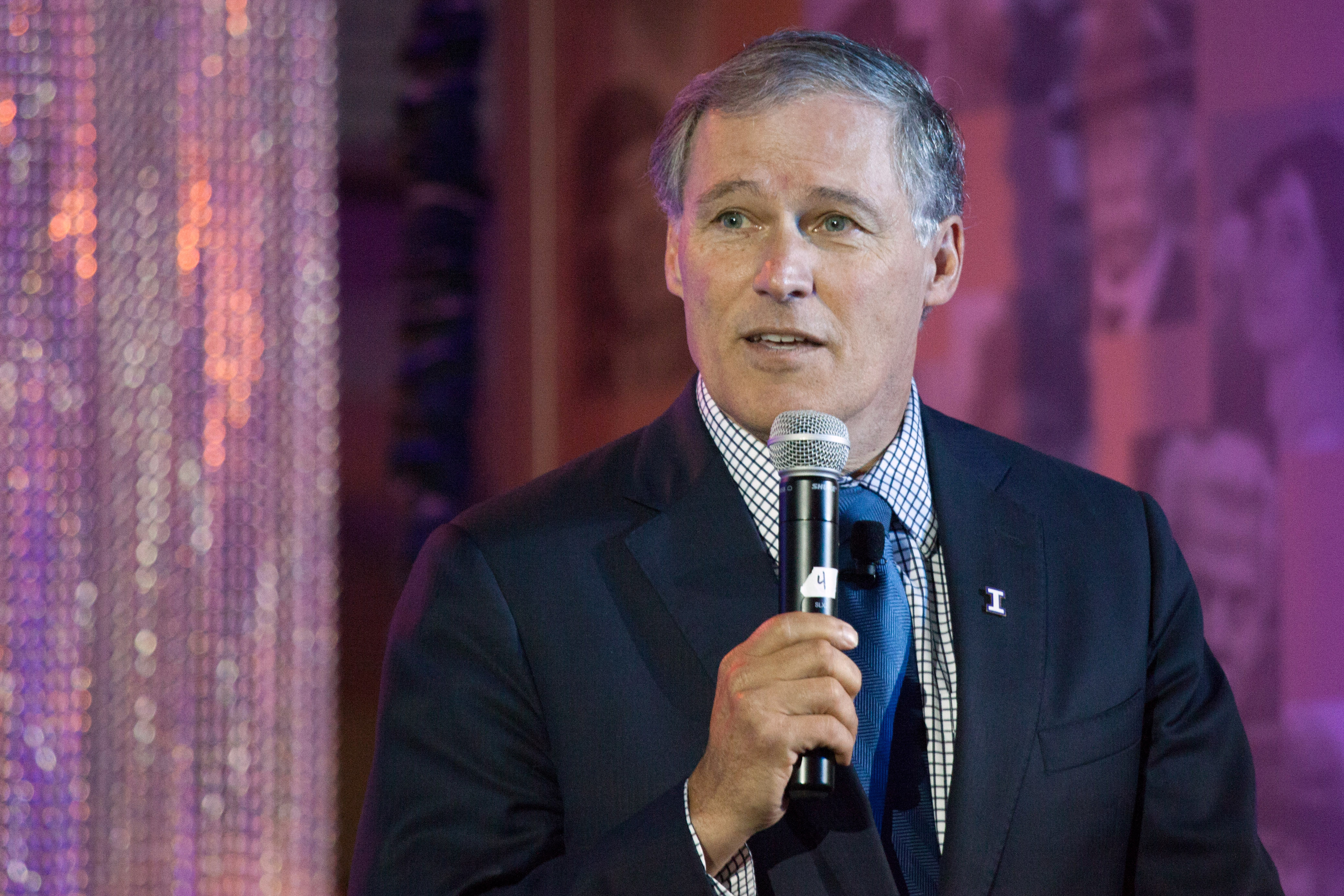
Jay Inslee announced his official campaign for president on Friday, March 1. The first governor to announce his run in a sea of senators, Inslee’s campaign differs from others in one distinct way: he is running a single-issue campaign, laser-focused on tackling climate change. In his announcement video, he says, “We’re the first generation to feel the sting of climate change, and we’re the last that can do something about it.” That sentiment will be familiar to Washington residents, as it is something he has frequently asserted in the past few years as governor. Currently in his second term, Inslee will continue to hold his office while he campaigns in order to leave the door open to a third term should his presidential campaign fail. Before becoming governor, he was a Representative in both the U.S. and the Washington House of Representatives.
Climate change: In his campaign announcement, Inslee said that his core focus would be on tackling climate change: “We have an opportunity to transform our economy, run on 100 percent clean energy, that will bring millions of good paying jobs to every community across America, and create a more just future for everyone.” Inslee’s proposal is similar to the Green New Deal, which he has praised. He’s calling for an intersectional policy proposal and jobs package that would tackle key issues like income inequality, environmental justice, and greenhouse gas emissions in one sweeping package.
LGBTQ rights: Long before it was politically salient to do so, Inslee publicly supported gay marriage. Not civil unions or domestic partnerships or leaving-it-up-to-the-states, but full-blown gay marriage. In 2011, after he announced his candidacy for governor, he said as much at a campaign kick-off event. Inslee’s advocacy for the LGBTQ community has grown from there: in 2018, he signed into law a bill that banned gay conversion therapy. At the signing ceremony, he called conversion therapy a form of abuse. He also vowed to continue to offer protection from discrimination to trans kids after the Trump administration stripped federal protections.
Immigration: Early on in the Trump administration, Washington state became ground zero for resistance to the Muslim ban. Inslee called the ban “manifest and unjustifiable chaos and cruelty” and his AG subsequently sued over the order. But his pro-immigration stance goes beyond the Trump administration: though undocumented students in Washington have been eligible for in-state tuition since 2003, in 2014 Inslee signed the Washington State DREAM Act which made undocumented students eligible for state financial aid.
In 2017, Inslee signed an executive order banning the use of state funds to enact what he called “mean-spirited” federal immigration policies. Most recently, in June 2018, he signed an executive order giving emergency funding to nonprofits offering legal assistance to immigrants and refugees.
Taxes: While he has not released a presidential tax plan, Inslee did recently release his budget proposal for the state of Washington, which can give us some insight into his vision. One important thing to note: Washington has one of the most regressive tax systems in the country, lacking an income tax in a state that is home to multiple multibillion-dollar industries. He has proposed a 9 percent capital gains tax, an increase in certain business tax rates, and a reworking of the real estate excise tax to make it more progressive. These tax proposals, while not the same as an income tax, would put more of the tax burden on the high earners who populate Washington state (which is home to the likes of Microsoft and Amazon.) Further, his proposal includes more spending on education, including increasing the state financial aid budget, tackling climate change, and increasing funding for mental health services.
Gun control: Inslee is an outspoken gun control advocate and in fact lost his first seat in the House of Representatives when he voted for the 1994 Assault Weapons Ban. As Governor, he has called for restrictions on military-style assault weapons, and he oversaw legislation to raise the age for assault weapon purchase to 21 from 18. He also signed into law a voluntary gun buy-ban, which allows Washington residents to voluntarily give up their right to buy firearms.
Health care: In early February, Inslee tweeted, “Climate change isn’t more important than health care. It IS health care.” The governor has publicly supported universal health care in the past, and in fact, introduced legislation in January 2019 that would create a public option in the Washington state health care exchange. While it wouldn’t create a public health insurance agency, it would make the Inslee administration into a negotiator that would pick “at least one insurer to offer Obamacare exchange coverage for the entire state.” He called the legislation the “first step” on the way to universal health care.
Bernie Sanders, Senator from Vermont
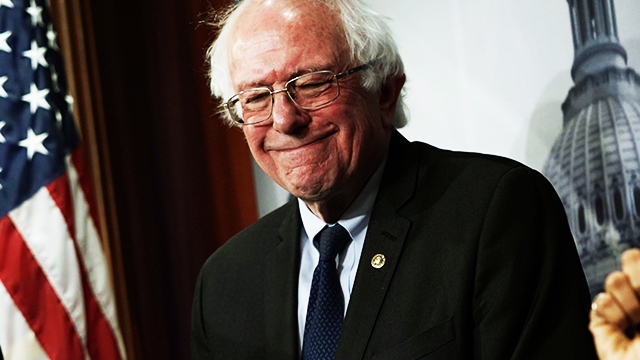
Sanders announced on Vermont Public Radio on the morning of February 19 that he would, indeed, be running again for President in 2020, a welcome announcement for many. Though technically an Independent, Sanders frequently caucuses with the Democratic party and ran in the 2016 Democratic primary against Hillary Clinton. His 2016 bid for president helped radically change the face and platform of the Democratic party, marking a seismic shift to the left. This was welcome news for many who love the finger-wagging Senator.
Sanders’s 2016 Democratic Socialist platform, which included a $15 federal minimum wage, a college-for-all proposal, and single-payer healthcare has had a lasting effect on the Democratic Party as a whole. Reports claim that he’s preparing to address several missteps from his 2016 campaign in order to “ensure any new 2020 campaign is safer and stronger.”
Climate change: Sanders supports the Green New Deal. In his announcement video, he stated, “We need a president who understands that climate change is real, is an existential threat to our country and the entire planet, and that we can generate massive job creation by transforming our energy system away from fossil fuels to energy efficiency and sustainable energy.”
That said, his GND platform will be slightly different, according to the Washington Post: his plan will include “significantly more” details about how the GND would work.
LGBTQ rights: According to Time, Sanders was “ahead of his time in supporting gay rights” as Mayor of Burlington, Vermont in the 1980s, and he was one of the few Democratic members of the House of Representatives who voted against the Defense of Marriage Act in the 1990s and opposed “Don’t Ask, Don’t Tell.” While Sanders was late in catching up to fellow Vermont politicians (he began publicly supporting gay marriage in 2009), he has consistently been an advocate for the LGBTQ community, including calling out the Trump administration on the trans military ban, being one of the few politicians to tweet support for a bill banning housing discrimination against trans people, and even creating what the Daily Beast describes as a “trans mecca” in Burlington in the 1980s.
Immigration: Sanders has called the Trump administration “heartless” toward immigrants and supports a path to citizenship for DREAMers. He’s not, however, as far to the left as other candidates on this matter. In fact, he’s comparatively conservative. In 2007, he opposed a bipartisan immigration reform bill on the “grounds that it would have expanded low-wage guest-worker programs” according to The Atlantic. He described a call for open borders as a “Koch Brothers proposal,” referring to the infamous right-wing billionaire brothers who bankroll hyper-conservative politicians and policies.
Taxes: Sanders supports “heavy taxation of wealthy estates, corporations, the richest 1 percent of Americans and offshore tax havens” according to the Washington Post. His Medicare-for-All proposal would also require raising taxes on the middle class, though his aides argue that this will be a net gain for the middle class, as health care costs will fall greatly. Two more of his chief economic policies: raising the federal minimum wage to $15 per hour, and cutting all student loan interest rates in half.
Gun control: Sanders supports passing an assault weapons ban, stating after the shooting in Parkland, Florida that semi-automatic weapons like the AR-15 are “for killing human beings.” Sanders is actually one of the more gun-friendly Democratic senators, as Vermont is largely rural and is home to a substantial gun-owning population. He voted against the Brady Handgun Violence Prevention Act, which would have expanded background checks and extended the waiting period for gun purchases. But he has also voted against concealed carry reciprocity, which would allow concealed carry permit holders to bring their concealed carries over state lines, and in an interview with several student journalists from Marjory Stoneman Douglas High, he said he supports “commonsense gun legislation.”
Health care: One of Sanders’ main policy proposals in the 2016 primary—and one of the clearest marks he has left on the Democratic party—was Medicare-for-All, or, single-payer health care, which would entirely eliminate the privatized health care system. He has proposed legislation in the Senate several times over the years, and the most recent iteration of the bill has been cosponsored by or received public support from most of the other Democratic candidates running for president.
Aides say his plan would drive down costs for all Americans and provide free insurance for the approximately 30 million Americans who currently lack coverage.
Amy Klobuchar, Senator from Minnesota

Klobuchar, a thrice-elected senator, is the latest Democrat to confirm she’s running for President. On Sunday, February 10, Klobuchar announced her candidacy in the middle of a snowstorm — an appropriate setting for the born-and-raised Minnesotan. Before she was elected to Senate in 2006, Klobuchar was a corporate lawyer who got into politics in the 1990s when she was “kicked out” of the hospital only 24-hours after giving birth. After her experience, she successfully lobbied the Minnesota state legislature to guarantee at least 48 hours in the hospital for new moms — which later became federal law under then-President Bill Clinton.
Klobuchar became a public servant when she was elected Hennepin County attorney in 1998, a position she held until she was elected to Senate. She’s considered more moderate than other high-profile Democrats running: she votes with Trump 31.5 percent of the time, compared to, say, Elizabeth Warren, who votes with Trump 13.5 percent of the time.
Climate change: Klobuchar would not only rejoin the Paris climate agreement on her first day in office, she supports the recently released Green New Deal, per the Associated Press. She has a lifetime score of 95 percent from the League of Conservation Voters, and in 2008, she addressed the Senate about introducing a cap-and-trade market system (which puts an increasingly strict cap on emissions and allows companies to buy and sell carbon allowances, effectively incentivizing lower emissions) that would have cut emissions by 70 percent by 2050.
LGBTQ rights: In 2013, Klobuchar was one of 41 Senators to co-sponsor a bill to repeal the Defense of Marriage Act, which defined marriage as between one man and one woman. She co-sponsored a 2013 bill to end employer discrimination on the basis of sexual orientation and/or gender identity, and in 2018 she co-sponsored a bill to “end discrimination based on actual or perceived sexual orientation or gender identity in public schools” after the Trump administration rolled back Title IX protections for trans kids, and she has publicly come out against the trans military ban. She was endorsed by the Human Rights Campaign for her 2018 Senate re-election campaign.
Immigration: While Klobuchar does not support the abolition of Immigration and Customs Enforcement (ICE), she has said the immigration system needs sweeping reforms. In November 2018, she told George Stephanopoulos, “We have the will to put the money at the border for better security and combine it with some sensible reforms, including things like a path to citizenship, things like making sure we have workers on our fields and in our factories that we need.” She believes in a path to citizenship for most undocumented immigrants, particularly DACA recipients. Further, she would increase legal immigration; she initially tried to increase the number of visas in 2013 as part of a bipartisan coalition attempting to reform the immigration system.
Taxes: The Minnesota Senator voted against the 2017 Republican tax overhaul, and throughout her career, she has consistently voted against tax cuts for the rich. Per the Washington Post, she has previously proposed expanding 529 savings accounts, qualified tuition savings plans meant to make saving for higher education easier, to cover more vocational and technical programs. In her candidacy announcement, she stated that she would close tax loopholes for wealthy Americans.
Gun control: At her campaign kickoff, Klobuchar, whose constituency in Minnesota has a 36.7 percent gun ownership rate — said she would advocate for “common sense gun laws.” She is a co-sponsor of the 2019 re-introduction of the Assault Weapons Ban. She supports expanding background checks to cover all gun sales, and she was endorsed by the Coalition to End Gun Violence during her 2018 re-election campaign.
Health care: Klobuchar does not support Senator Bernie Sanders’s Medicare-for-All bill. Instead, she says she supports universal coverage and would like to lower the age at which individuals could buy into Medicare to 55 (it’s currently set at 65-years-old).
Elizabeth Warren, Senator from Massachusetts
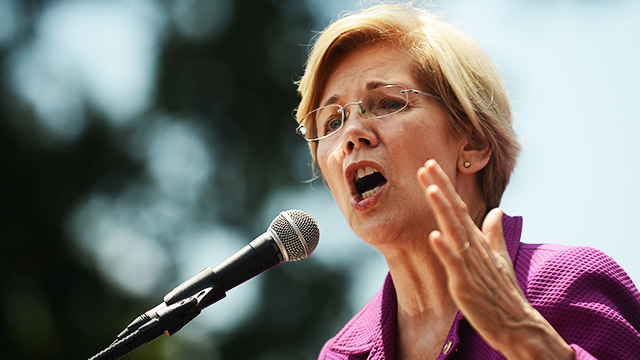
After Warren announced that she had formed an exploratory committee at the end of 2018, she officially announced her candidacy on Saturday, February 9 in Massachusetts, in a speech taking the “ultra-wealthy” to task for what she called decades-long class warfare. First elected to Senate in 2012 when she defeated Republican Scott Brown, Warren is now the Senior Senator from Massachusetts. Before she was elected to office, she was a law professor who studied and specialized in issues concerning bankruptcy and middle-class personal finance. Her rise to the public consciousness, then, was not exactly a surprise: she first became a national name thanks to her advocacy for middle-class Americans in the wake of the 2008 global financial crisis. She pushed for and was instrumental in the creation of the Consumer Financial Protection Bureau, a watchdog agency officially formed under the Obama administration, meant to regulate large financial institutions and protect consumers from predatory and misleading financial products.
Climate change: Warren recently stated in a video announcing the Climate Risk Disclosure Act, “Climate change is a clear and present danger for our planet. It’s also a looming disaster for our economy.” The proposed act, she says, would force companies to disclose publicly how climate change could affect their value. It’s no surprise, given her background, that she’s approaching climate change from an economic standpoint, but importantly, she posits that this would pressure large companies to transition to cleaner energy without costing taxpayers anything. According to Axios, one of Warren’s aides says that the Senator backs the idea of the Green New Deal, but has not specified if she would enact Ocasio-Cortez’s proposal or something more moderate.
LGBTQ rights: Given that Massachusetts has recognized same-sex marriage since 2004 and even updated their health care laws to guarantee coverage for same-sex couples, it’s not surprising that Warren is an advocate for the LGBTQ community. She even pushed former President Obama to “evolve already” on the issue of same-sex marriage in 2012, and as a brand-new Senator, she supported 2013’s Employment Non-Discrimination Act, which passed the Senate and is waiting in limbo in the House. The bill would prohibit discrimination on the basis of gender identity and/or sexual orientation. More recently, she has supported efforts to classify conversion therapy as “dangerous, fraudulent” and she vehemently opposed confirming both Neil Gorsuch and Brett Kavanaugh to the Supreme Court.
Immigration: Warren has been an outspoken opponent of the Trump administration‘s nationalist, isolationist immigration policies. She visited the border to investigate the administration’s family separation policy, tweets frequently about the fact that children are still separated from their parents, and advocates for what she calls “comprehensive immigration reform.” That includes protecting DACA recipients and giving them a path to citizenship and replacing ICE with a completely new agency that “reflects [Americans’] morality.” She voted for 2016’s Fair Day In Court for Kids Act and 2019’s bill to keep DACA information private and prevent immigration officials from using DACA recipients’ information against them.
Taxes: Warren has long been a staunch opponent of the large financial institutions who caused the 2008 financial crash—the same institutions (and people) who are benefitting from the 2017 Republican tax overhaul. But instead of an increased marginal tax rate, à la Ocasio-Cortez, Warren will propose a wealth tax—a yearly levy on extreme fortunes. Americans with fortunes of $50 million to $999 million will pay a yearly 2 percent levy, and billionaires will pay a yearly 3 percent levy. The plan will, according to the Washington Post, would raise roughly $2.75 trillion from just 75,000 families over 10 years, and it includes safeguards against avoiding the levy. She would also raise the corporate tax rate and income tax rates on the wealthiest Americans, though she hasn’t specified a number.
Gun control: Warren supports numerous gun control measures, including expanding background checks and a national assault weapons ban. (A ban is already in place in Massachusetts.)
Health care: Warren co-sponsored Senator Sanders’s 2017 Medicare for All bill. That said, she has dodged questions about whether or not she would eliminate the private insurance market. As Slate reports, “She’s open to single-payer, but isn’t signaling that she’s wedded to it.” In other words: Warren is not guaranteeing a massive overhaul of the health care system but rather likely proposing Medicare become available to anyone who wants it while private markets remain intact.
Cory Booker, Senator from New Jersey
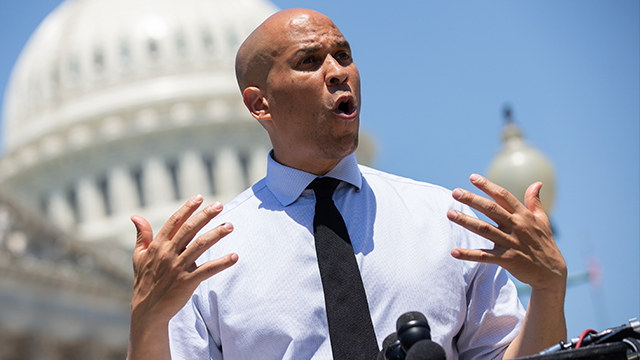
Booker is the latest Democrat to confirm he’s running for president; he announced his candidacy on February 1, releasing an optimistic video in which he asserts, “In America, courage is contagious.” He has often been a vocal opponent of the Trump administration, speaking out about everything from family separation at the border to the confirmation of Brett Kavanaugh to the Supreme Court. Before he became the first African-American to represent New Jersey in Senate, Booker was a community organizer, advocating for tenant rights in Newark’s central ward. He was then elected Mayor of Newark and served from 2006 to 2013, during which time, according to Pacific Standard, he reduced crime rates, added affordable housing, city services, educational opportunities, and shared green spaces, and ushered in the city’s “biggest period of economic growth since the 1960s.”
Climate change: Booker has been talking about climate change for years, and he was even among a group of several Senators who stayed up all night in 2014, hosting a talk on the threats climate change presents. He has a 98 percent lifetime score from the League of Conservation Voters. He supports the Green New Deal: in December 2018 he tweeted, “We must take bold action on climate change & create a green economy that benefits all Americans.”
LGBTQ rights: A longtime LGBTQ advocate, Booker refused to perform marriages as Newark’s Mayor until same-sex marriage was recognized. As a brand new Senator in 2013, he co-sponsored the Respect for Marriage Act, which would have repealed the Defense of Marriage Act and recognized same-sex marriage. He also co-sponsored 2013’s Employment Non-Discrimination Act, which would have prohibited employment discrimination based on sexual orientation or gender identity. During the Kavanaugh hearings, he grilled the now Supreme Court Justice on his personal views of LGBTQ rights, citing his concern that a Kavanaugh confirmation would cement the Trump administration’s trans military ban. When that exact result happened, he tweeted, “This policy is an affront to our values & hurts members of our military. This unjust ban should never be implemented & the courts should strike it down.”
Immigration: When he was still Mayor of Newark, Booker was an advocate for the DREAM Act, commenting in 2010 that it was foolish of Republicans to block a path to citizenship for undocumented immigrants who want to, among other things, join the military and attend school. Further, long before the Trump administration made family separation at the border into a policy, he co-sponsored 2016’s Fair Day In Court For Kids Act, which would have provided lawyers to children, sometimes as young as three- and four-years-old, who are subjected to deportation and asylum hearings without representation. He has been a vocal opponent of the family separations at the border and even wrote an essay on his experience at the border for Vox.
Taxes: Booker unsurprisingly voted against the Republican tax overhaul in 2017, and he said the bill was passed “at the expense of ordinary Americans.” In October, to combat wealth inequality, a gap which is growing, especially among racial lines, Booker introduced the American Opportunity Accounts Act, which would create savings accounts for kids, allowing them to make “wealth-building purchases” like paying for higher education or a down payment on a house. Every child would receive $1,000 at birth, and they would receive subsequent deposits based on their family income. This proposal would “come close” to wiping out the racial wealth gap according to Naomi Zewde, a researcher at Columbia. In order to pay for this proposal, Booker would restore the estate tax to 45 percent—its 2009 rate.
Gun control: Of the Parkland kids and their fight for gun control, Booker has said, “These young people are showing what true courage is.” Gun control, he says, is not a fringe issue, but a fight “for the majority of Americans” who want “common sense” measures. He supports closing the gun show loophole, universal background checks, and reauthorizing the assault weapons ban.
Health care: Booker supports Senator Bernie Sanders’s Medicare-for-All proposal, which would completely overhaul the U.S. health care system. Booker would create a public system that would cover all Americans, regardless of age or pre-existing conditions, though he would not dismantle the private system, citing countries that maintain private markets while still making public health care available for all.
Kamala Harris, Senator from California
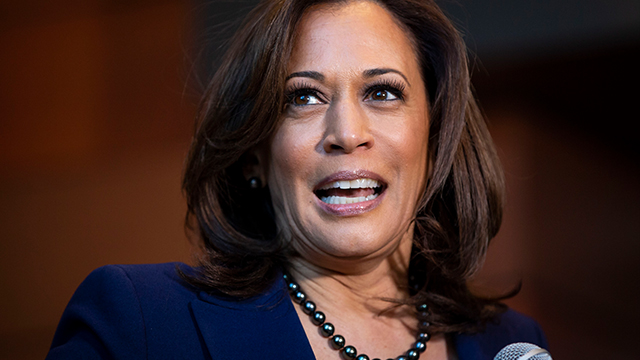
After months of speculation, Harris officially announced her campaign on January 21, 2019, and kicked off her campaign on Sunday, January 27 in her hometown of Oakland, California. The former prosecutor and current Senator took office in 2017 and quickly became a vocal opponent of the Trump administration. Before she became a Senator, she was the California Attorney General.
Climate change: The League of Conservation Voters has given Harris a 100 percent scorecard. She supports the Green New Deal, a sweeping policy proposal “that would create jobs with fair wages for every American, while simultaneously converting the U.S. economy to renewable energy sources in just 12 years.”
LGBTQ rights: Harris has been criticized for her time as the California Attorney General, during which she blocked efforts to allow trans prison inmates to receive gender reassignment surgery. That said, she also declined to defend Proposition 8, the infamous same-sex marriage proposal, co-sponsored a bill to eliminate the “gay panic” and “trans panic” defense for criminals and signed directives both supporting Obama-era protections for trans students and condemning North Carolina’s infamous bathroom bill. She is considered by several LGBTQ outlets to be the most LGBTQ-friendly candidate running.
Immigration: Harris recently called President Donald Trump’s demands for a border wall between the U.S. and Mexico a “medieval vanity project.” During the government shutdown, she voted against funding the wall in order to reopen the federal government. She is a vocal supporter of DREAMers, and she recently co-signed a bill that would grant privacy to DACA recipients, so their information could not be used by immigration enforcement. She has been vocal about what she sees as human rights abuses at the border, and she believes that, when it comes to Immigration and Customs Enforcement (ICE), the U.S. should “probably think about starting from scratch.”
Taxes: Harris has proposed a $2.8 trillion tax plan that would pay tax credits up to $3,000 ($6,000 for couples) for middle- and working-class Americans. Neither high earners nor those without incomes would benefit from her plan. She would eliminate the tax cuts that were passed in last fall’s sweeping rewrite of the tax code, which heavily benefited the rich. She has also proposed tax credits for renters who make less than $100,000 yearly and spend more than 30 percent of their income on housing.
Gun control: Harris supports Senator Dianne Feinstein’s proposed ban on assault weapons (which the U.S. enacted from 1994-2004). She also supports universal background checks and has a 7 percent rating from the National Rifle Association.
Health care: Harris would like to enact single-payer health care, replacing the private system currently in place. Her Medicare-for-All plan is closely based on Bernie Sanders’s singer-payer plan, which would essentially eliminate private insurance. After receiving criticism for her health care plan, she announced she’s open to more moderate health care plans, but won’t waver on making single-payer available.
Julián Castro, former Secretary of Housing and Urban Development
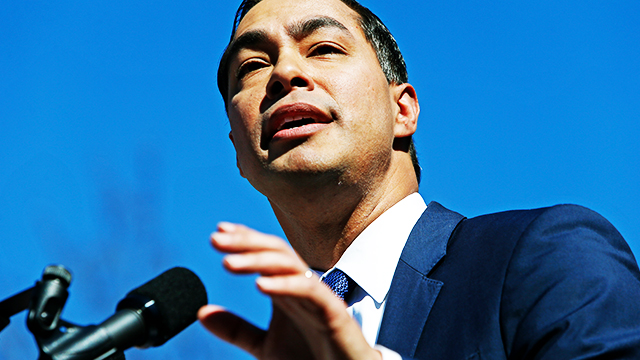
Castro was the Mayor of San Antonio, Texas from 2009 until 2014, when he was nominated by then-President Barack Obama to become Secretary of Housing and Urban Development (HUD). He held his position at HUD until Trump’s inauguration in January 2017. As HUD Secretary, he worked on increasing equity in the U.S. by creating the National Housing Trust Fund, a grant program that aids in the creation of affordable housing for extremely low-income people. Additionally, he released the Affirmatively Furthering Fair Housing Rule (AFFH), an addendum to the 1968 Fair Housing Act, a provision meant to further “address significant disparities in housing needs and in access to opportunity.” His twin, Joaquin Castro, is a Congressman representing Texas’s 20th district.
Climate change: During his presidential bid announcement, Castro “promised to bring the US back into the Paris climate change agreement with his first executive order.” He also promised to pass a version of the Green New Deal. According to Grist, while he was Mayor of San Antonio, he offered green jobs training, created a “20-percent renewable energy by 2020 plan,” and brought car sharing and bike sharing services to the southern city.
LGBTQ rights: Castro has long been considered an ally of the LGBTQ community. In San Antonio, he signed an anti-discrimination ordinance that protects people from discrimination on the basis of sexual orientation, extended domestic partnership benefits, and advocated for the LGBTQ community. As HUD Secretary, he has a similar record: he published a city ordinance to ensure trans individuals aren’t turned away from shelters, partnered with nonprofits to assist homeless LGBTQ youth, and attempted to curb anti-LGBTQ discrimination in public housing.
Immigration: In his announcement speech, Castro, a third-generation Mexican-American, spoke at length about the importance of immigration. He has tweeted support for DACA recipients in the past, stating that he believes DREAMers must be protected and further, that there should be a path to citizenship for DREAMers.
He is staunchly opposed to Trump’s proposed border wall.
Taxes: When asked about Congresswoman Alexandria Ocasio-Cortez’s proposal for a 60-70 percent marginal tax rate on the super-wealthy, Castro said, “I can support folks at the top paying their fair share.” Further, he told CNN’s Jake Tapper that, if elected, he would undo the 2017 Republican tax overhaul which gave massive tax cuts to the super-wealthy. He’d additionally raise the corporate tax rate back to 35 percent from 21 percent.
Gun control: Castro has been a long-time advocate for stricter gun control measures. Along with his Congressman twin, Joaquin, he called for an assault weapons ban and eliminating gun show loopholes in 2012. He would also like to limit the sale of high-capacity magazines.
Health care: Castro supports Medicare-for-All. He has not, of yet, elaborated on whether or not that is the same single-payer system Sanders has proposed or whether it is a more moderate proposal that would leave the private market largely intact.
Tulsi Gabbard, Representative from Hawaii
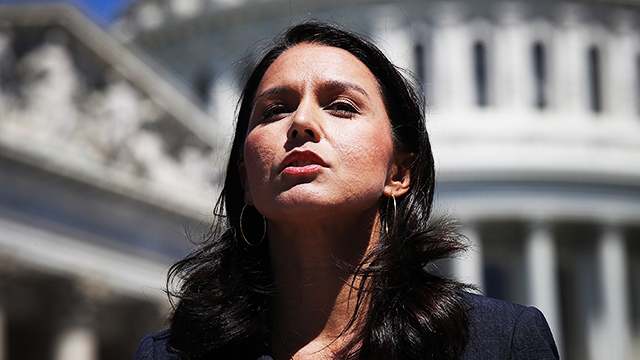
As The New Yorker tells it, when the 36-year-old Congresswoman first got into politics, “she was only twenty-one, and in those early years she was a social conservative, pro-life and active in the fight against same-sex marriage.” A military veteran, she is anti-interventionist when it comes to “regime change” wars and pro-intervention when it comes to “terroristic threats.” She surfs, she’s the first American Samoan and first Hindu elected to the House of Representatives, and in 2017, she famously traveled to Syria to meet with Bashar Al-Assad. Of the trip, she has claimed that “she and Assad—who is known to viciously punish dissent—had negotiated an agreement to bring democracy to Syria.”
To say the least, Gabbard is an unusual Democrat.
Climate change: The League of Conservation Voters has given Gabbard a 91 percent for 2017, and an overall score of 96 percent on her scorecard. For those who know Gabbard best, this isn’t a surprise: she was raised by environmentalist parents and early in her political career she co-founded the Healthy Hawaii Coalition, which promoted environmentalism, with her father. She supports the creation of a Green New Deal.
LGBTQ rights: Gabbard rather infamously used to run a virulently anti-LGBTQ group, one that condoned the use of conversion therapy, with her father, Hawaii State Senator Mike Gabbard. That said, as a Congresswoman, she has a 100 percent scorecard from LGBTQ advocacy group Human Rights Campaign, and after announcing her candidacy, she published a video in which she apologized for her past views.
Immigration: Gabbard supports the passage of the DREAM Act. She called Trump’s comments on “sh*thole countries” contrary to American values. She has come out as a strong opponent to the Trump administration’s policy of separating families at the border.
Taxes: In 2014, Gabbard voted against increasing taxes on the middle class. Further, she voted against the 2017 Republican tax overhaul, which gave massive tax cuts to the super-wealthy and corporations. On her congressional election website, she discusses providing tax credits and reducing payroll taxes for small businesses and ending tax cuts for corporations that take jobs overseas. She does not provide any information about her economic platform on her presidential candidacy website.
Gun control: Gabbard supports reinstating an assault weapons ban, closing the gun show loophole, and the Domestic Violence Loophole Closure Act. She has received an F-rating from the NRA.
Health care: A close ally of Senator Sanders, Gabbard unsurprisingly supports his platform, Medicare-for-All. She was a co-sponsor for the Medicare For All Act, which would create a single-payer health care system.
John Delaney, former Representative from Maryland
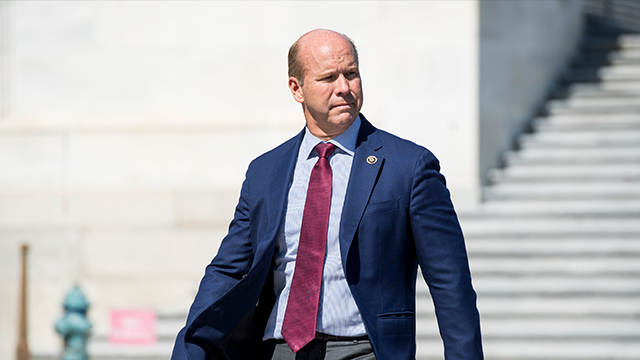
Delaney is a former businessman who was first elected to the House of Representatives in 2012; he held his position until he stepped down at the end of 2018 in order to focus on his presidential campaign. During his time in the House, he introduced the Open Our Democracy Act in 2017, which would have created nonpartisan redistricting commissions, made Election Day a federal holiday, and created nonpartisan primaries in which the two most popular candidates, regardless of party, would proceed to the general election.
Climate change: Delaney has previously said, “The science around climate change is unassailable.” In the same statement, he discussed the fact that climate change is a threat both to the economic status and national security of the country. The League of Conservation Voters has given him an overall score of 94 percent. He has stated on his campaign website that he would implement a carbon tax, and he supports “market-based solutions” to climate change.
LGBTQ rights: The former Congressman has received a 100 percent scorecard from the HRC. He was a member of the Congressional LGBT Equality Caucus, which he joined in 2017. He is against Trump’s trans military ban.
Immigration: Delaney has supported several measures to reverse the Trump administration’s policy of family separation at the border. He released an ad sharing his grandfather’s immigration story back in June 2018, arguably at the height of the family separation uproar. He supports reversing the Trump administration’s restrictions on refugee resettlement in the U.S. Delaney supports a path to citizenship for DACA recipients; he also tweeted that he would be willing to compromise on border security funding (not necessarily a wall) if it meant a path to citizenship for undocumented immigrants (not just DACA recipients) and an increase in the number of skilled worker visas.
Taxes: While Delaney has not yet released a specific tax proposal, he voted against the 2017 Republican tax law. In early 2018, he proposed raising the corporate tax rate from 21 percent to 23 percent, stating it would raise around $200 billion in revenue. (The tax rate had just been cut from 35 percent.) He introduced the Don’t Tax Higher Education Act to the House in 2018, which would have repealed a 1.4 percent tax on investment income made by certain private universities. On his campaign website, he states that he would like to lower the interest rate on student loans and double the earned income tax credit. Further, according to his website, he would like to simplify the tax code.
Gun control: Delaney has a 7 percent rating from the NRA. In 2017, he voted against concealed carry reciprocity, which would have made concealed carry permits legal across state lines. He supports the expansion of background checks, and he co-sponsored the House version of the Assault Weapons Ban bill in 2018.
Health care: Delaney’s campaign website states that he would create a universal health care system, and in an interview with CNBC, he expanded upon what his health care program would look like. It’s somewhat similar to the Sanders Medicare-for-All program in that he would eliminate the private health care system, but he would leave Medicare as-is. He says of his plan, “New system, everyone gets health care from when they’re born to they die.” Further, individuals would be able to buy supplementals (such as in Medicare) or even opt-out and pay for private insurance instead, but there would be a “backbone” system for everyone from the time they’re born to the time they die.
Andrew Yang, entrepreneur
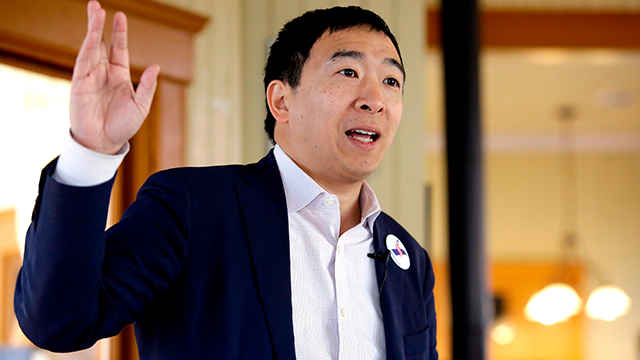
Yang is a businessman sans political background—at least, not in the electoral sense. Born to Taiwanese immigrants, Yang attended some of the best schools in the country (Phillips Exeter, Brown, and Columbia Law) and practiced as a lawyer before leaving law behind in order to enter the world of entrepreneurial philanthropy. Yang created Venture for America, which trains and send entrepreneurs to struggling American cities as a way to help restart local economies. He stepped down in 2017 to focus on his presidential campaign, which is chiefly based upon giving a universal basic income of $1,000 per month to every American, part of his core promise to prepare the U.S. for the robot revolution, which will largely wipe out jobs.
Climate change: Yang believes that “[c]limate change is an existential threat to humanity and our way of life.” One of his proposals to combat the devastation caused by climate change is to increase the Army Corps of Engineers’ budget in order to improve infrastructure and disaster mitigation, the need for which, he says, will rise as climate change worsens. His platform includes ending tax credits for fossil fuel companies, investing large amounts of money in building green infrastructure and researching the possibility of reversing environmental damage, instituting a carbon tax, and supporting renewable energy adoption across public and private sectors. He would additionally rejoin the Paris Climate Agreement. He has made no public comments on the Green New Deal as of yet.
LGBTQ rights: Yang supports LGBTQ rights; he believes that gender identity and sexual orientation should be protected classes, preventing discrimination in employment, housing, etc. His platform includes funding for educating the public about the LGBTQ community and helping members of the community who face discrimination. He also states that he will appoint LGBTQ individuals to senior posts in his administration.
Immigration: The son of immigrants from Taiwan, it is perhaps no surprise that Yang considers himself pro-immigrant (a position which he calls instinctive). He told the South China Morning Post that any international student who graduated from an American university would receive a green card. Further, he would create a step-by-step pathway to citizenship for all undocumented immigrants while also increasing border security.
Taxes: Yang has proposed introducing a Value-Added Tax (VAT) in the U.S., which would help prevent corporations from moving around money in such a way to avoid paying their fair share of taxes. The VAT would be 10 percent (half of what it is in Europe), and it would, according to Yang, create a revenue stream that would not be negatively affected by increasing automation. Further, it would fund his universal basic income proposal, which he calls “freedom dividends.”
Gun control: Of the gun control debate in this country, Yang has tweeted, “I find the thoughts and prayers expression maddening. We don’t elect legislators for their sympathy. We elect them to pass intelligent laws that improve society.” Yang believes there should be testing in order to procure a firearm (similar to driver’s license testing), raise the legal age of gun ownership to 21, restrict access to assault weapons (though he doesn’t specify how), restrict gun sales to individuals who have a history of mental illness, domestic violence, or violent crime (again, no specifications), and fine gun manufacturers upwards of $1 million for every person killed in public by a gun of their manufacture.
Health care: Yang supports Medicare-for-All. He would develop a single payer system, independent of age, job status, or pre-existing conditions, in order to address what he calls the “healthcare crisis” in our country.
INDEPENDENT
Howard Schultz, former CEO of Starbucks
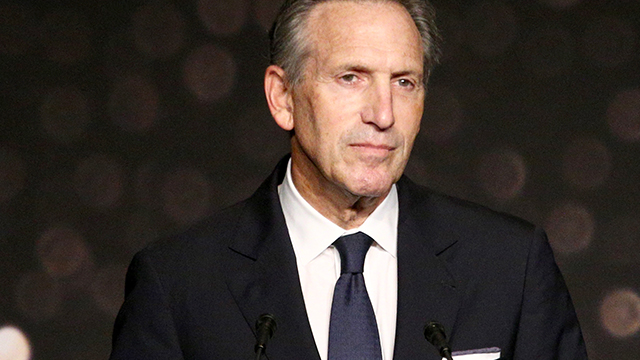
The former CEO of double-roasted coffee giant Starbucks, Schultz announced via Twitter (how else?) on January 27 that he was “seriously considering running for president as a centrist independent.” Before this announcement, his involvement in politics included urging his employees to write, “Come together” on cups in order to encourage bipartisanship, a commitment of $30 million from his philanthropic foundation to help veterans re-integrate into civilian life, and making comments about American politics, including endorsing Hillary Clinton for president in 2016.
His favorable rating in the public is about 4 percent across demographics, “with 40 percent viewing him unfavorably, and the rest not knowing who this person is,” according to New York. Further, polling shows that despite the small fraction of support he does have, he would almost definitely swing the election in Trump’s favor.
Climate change: As the former head of a coffee company, Schultz believes that climate change is an existential threat. He acknowledges that climate change is real and at an event promoting his new book, he told the audience, “We must, as a responsible society, recognize that we must work with every other nation to do everything humanly possible to reverse what is happening.” He would rejoin the Paris Climate Agreement
LGBTQ rights: Under Schultz’s tutelage, Starbucks has consistently offered public support for issues like the legalization of gay marriage, and while explaining to a shareholder in 2013 why he has done so, he said, “We employ over 200,000 people in this company, and we want to embrace diversity of all kinds.” The company has covered gender reassignment surgery under its health plan since 2012, and in mid-2018, they started covering other surgeries for trans employees, such as facial feminization, which are often considered cosmetic and therefore not covered by insurance companies. Schultz as a candidate has not commented explicitly on the LGBTQ community, but there’s no reason to think he’d do an about-face.
Immigration: The former CEO agrees with Republicans (and, frankly, many of the Democrats running for POTUS) that the border needs tighter security. That said, he called Trump’s proposed border wall “insanity.” Further, he supports a path to citizenship for DACA recipients. For the other estimated 11 million undocumented workers, he says, “Let them get in line, pay taxes, pay a fee, and over time give them the opportunity to become Americans.” In other words: he supports a path to citizenship for all undocumented workers, so long as they follow instructions.
Taxes: Schultz opposes Democrats’ proposed higher taxes on the wealthy. (According to the Washington Post, Warren’s wealth tax, for example, would mean that “Schultz would personally pay an additional $91 million in taxes.”) At the same time, he has called debt, not climate change, the biggest threat to the U.S., and has stated that he will tackle the debt, which stands at about $22 trillion. He has not stated how he will reduce the debt, other than reducing entitlement programs. He called the Republican tax overhaul’s permanent reduction of the corporate tax rate a “crisis of capitalism” but didn’t offer specifics.
Gun control: In 2013, Schultz wrote an open letter, effectively telling Starbucks customers that, while the chain isn’t out-and-out banning guns, they’d rather you didn’t bring them into any stores. In a similarly, ahem, balanced June 2018 interview with CNBC, Schultz stated, “Seventy percent of the American people want the kind of policy legislation that takes the guns of war out of the American peoples’ neighborhoods.”
Health care: Schultz does not support Medicare-for-All, stating it’s “not American.” At the same time, he opposes Republican plans to repeal the Affordable Care Act. He told the crowd at his book event that rising premiums have “clearly” become a problem and will address rising costs by putting pressure on pharmaceutical companies and their lobbyists. (In other words, it seems that he would perhaps try to pass measures preventing lobbying on behalf of pharmaceutical companies rather than consumers, but he made no comment to clarify.)
GOP
While you have Republicans like former Senator Jeff Flake confirming that they won’t primary Trump, there are murmurs about other possible candidates—those who, compared to the current Commander-in-Chief, are more politically moderate. Those include Larry Hogan, the current Governor of Maryland, and John Kasich, the former Governor of Ohio.
As of now, however, there are no Republicans forming exploratory committees, and the only confirmed GOP candidate is President Trump.
Confirmed
Donald Trump, President of the United States
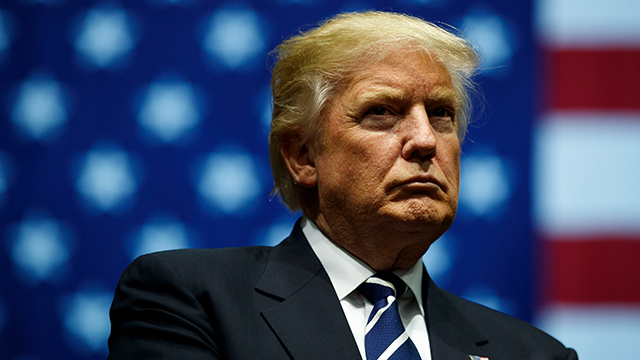
Trump’s team filed a statement of organization for the 2020 campaign on January 20, 2017—the day of his inauguration—and he’s been fundraising ever since. He officially announced his intention to run in 2020 in February 2018 in a speech that was decidedly calmer than his 2015 announcement, during which he asserted that Mexicans “are bringing drugs, they’re bringing crime, they’re rapists. ”
Climate change: Trump has consistently denied the existence of man-made climate change; he frequently cites record-breaking cold as a reason to doubt global warming, with his most recent “we could use some global warming” tweet taking place this January. In 2012, he tweeted that global warming was a Chinese hoax. He pulled out of the Paris Climate Agreement only months after he took office, and he has populated his administration with fossil fuel lobbyists and climate change deniers and skeptics.
LGBTQ rights: In summer 2017, Trump announced he would ban transgender individuals from serving in the military, citing medical costs; after much back and forth, the trans military ban has been upheld by SCOTUS. The Trump administration is also going after trans people by considering defining “sex as either male or female, unchangeable, and determined by the genitals that a person is born with” under Title IX—a move which would effectively erase protections for trans kids. To say nothing of the numerous anti-LGBTQ judges the administration has nominated to courts all over the land (including the highest court—Gorsuch and Kavanaugh both have anti-LGBTQ records).
The Justice Department, in 2017, rescinded an Obama-era directive that protected trans individuals from employment discrimination and argued on behalf of discrimination against the LGBTQ community under the guise of religious freedom. What’s more: the Department of Health and Human Services created a new department which will “ensure health care providers’ religious liberties aren’t violated.” In other words: medical professionals will be able to discriminate against LGBTQ people under the protection of the law. They also refused to acknowledge June as Pride Month, which isn’t as big a deal as the other decisions, but it still speaks volumes.
Immigration: One of Trump’s first executive orders as president was to enact a “Muslim Ban.” The first version of the order was enacted on January 27, 2017, only seven days after he took office. It banned foreign nationals from seven predominantly Muslim countries from entering the country for 90 days, suspended the entry of Syrian refugees indefinitely, and suspended refugee entry from all other countries for 120 days. The ban has gone through multiple iterations and court battles and ultimately the third version of the ban was upheld by SCOTUS.
Trump called El Salvador, Haiti, and African nations “sh*thole countries.” He has lowered the ceiling for refugee resettlement to 30,000 for fiscal year 2019 after not even coming close to the 2018 ceiling of 45,000 refugees. (By comparison, average refugee resettlement pre-Trump, according to Vox, was, on average, 96,000 individuals per year.)
He has consistently degraded Latinx immigrants, starting with his 2015 comments that Mexicans crossing the southern border are rapists and drug mules. Most recently, his administration has separated families at the border. Several children have died under the care of border patrol agents, and there have been multiple allegations of abuse. Trump has claimed that the separations are an Obama-era policy (they’re not). Further, in his demands for a border wall, he sent troops down to the border, threatened to declare a national emergency to get the funding, and even shut down large parts of the federal government, leaving 800,000 federal workers furloughed, working without pay for an entire month.
Taxes: Trump was instrumental in the Republican tax overhaul of 2017, which, among other things, slashed taxes for the wealthiest Americans, lowered the corporate tax rate from 35 to 21 percent, and removed the individual mandate of the Affordable Care Act, which will leave an additional 13 million people uninsured, according to the Congressional Budget Office.
Gun control: Trump has, in the past, via Twitter, alluded to a belief that strict gun control is counterproductive, or at least ineffective. In 2017, he repealed an Obama-era directive that would have made it more difficult for people with a documented history of mental illness to procure firearms. In December 2018, his administration banned bump stocks, a piece of legislation that will go into effect in March of this year. After the shooting in Parkland, Florida in 2018, he announced he’d like to expand background checks (but seems to later renege on that assertion) and that he would like to arm teachers.
Health care: Since he took office, Trump has weakened the Affordable Care Act considerably (including by repealing the individual mandate in the above-mentioned tax bill), a policy which he has made no secret of pursuing. In 2017, Trump abruptly stopped reimbursing insurers for seeing low-income patients; a Montana court found, in September 2018, however, that insurers are entitled to those reimbursements, a move which may cost the government dearly. On the other hand, last year, the Trump administration introduced a rule that would allow self-employed individuals and small businesses to band together and form “association” policies not subject to Affordable Care Act requirements; the plan, which was at the time, almost universally panned, has benefitted those who take advantage, in many instances offering plans with decent coverage and lower premiums and deductibles than those available on the individual exchange. He also revealed plans to introduce a measure to lower prescription drug prices.
This post will update as new information becomes available.
